1. The 2014 budget crisis and December agreement
Less than three months after winning the election in September 2014, Löfven was met by his first government crisis.
After the Social Democrat-Green Party minority government’s proposed budget was rejected on December 3rd 2014 in favour of the right-wing opposition’s budget, Löfven said he would call a snap election to take place the following March to enable voters to “make a choice in the face of this new political landscape”, which for constitutional reasons couldn’t be formally called until December 29th 2014.
The crisis was caused by the anti-immigration Sweden Democrats, who held a kingmaker position, choosing to vote in favour of the opposition’s budget. But two days before the snap election was due to be called, Löfven announced that the crisis had been averted, after talks between Löfven and the country’s four centre-right parties – known then as the Alliance.
The new deal was called the “December Agreement” (decemberöverenskommelsen in Swedish, or simply DÖ) and its goal was to ensure that a minority government could govern Sweden. “With this agreement, the government will not be making any decision about an extra election, it is simply not of immediate interest,” said Löfven at the time.
The deal meant that the opposition would not vote for its own alternative budget in future votes if this threatened the elected government’s budget from getting passed. It was originally meant to end in 2022, but ended up being scrapped less than a year later in October 2015 by the Christian Democrats.
It was the first, but not the last time that Löfven had to navigate a government crisis during his time at the helm.
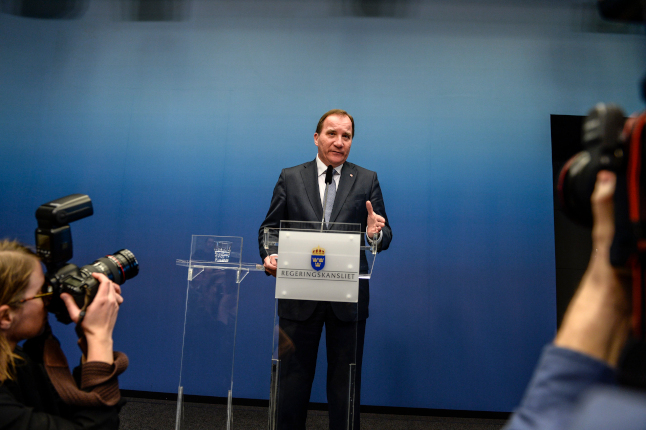
2. The 2015 refugee crisis
Autumn of 2015 offered another challenge for Löfven, which has arguably defined Swedish politics ever since.
In 2015, Sweden took in an unprecedented 163,000 asylum seekers – a shock for the country which was unprepared for so many – authorities had originally predicted as late as June 2015 that the number of asylum seekers applying would be lower than in 2014.
When questioned in 2016 by parliament on how the crisis was handled, Löfven described it as “a great challenge for Swedish society” adding that it was hard to judge the severity of the situation at the time. The government was criticised for waiting until November 2015 to introduce border controls, despite the fact that over 70 percent of refugees arriving to Sweden in 2015 arrived in September.
Löfven defended this decision, explaining that the police and the Migration Agency did not believe that border control requirements had been met before this point. He explained that EU rules on border controls had to be followed, saying that it would be difficult to explain to the EU why the government had introduced border controls before the police deemed it necessary.
Sweden also tightened asylum rules, including making temporary rather than permanent residence permits the norm, a move described at the time as temporary, but which later made it into Sweden’s Migration Act as the Social Democrats toughened its stance on immigration.
Asylum applications have dropped in recent years to below 22,000 in the year before the pandemic (in 2020 the number was below 13,000). Sweden’s stricter migration laws have affected all categories of immigrants, including parents, doctoral students and work permit holders.
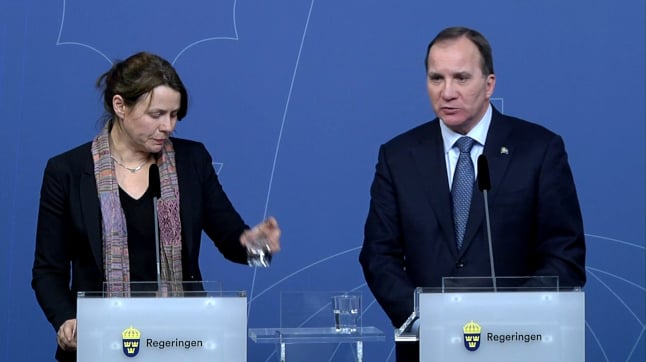
3. The long post-election negotiations in 2018
Sweden’s elections in September 2018 were too close to call, with neither one party nor one of the coalitions (centre-left: Social Democrats, Green Party, Left Party; centre-right: Moderate Party, Liberal Party, Centre Party, Christian Democrats) winning the 175 seats needed to form a majority government. Support rose for the far-right Sweden Democrats, albeit not as significantly as some polls had suggested it might.
This marked the beginning of a long, drawn-out negotiation period, with discussions continuing for 116 days until Löfven’s Social Democrat-Green coalition government – also known as the red-green coalition – was finally reelected in January 2019. With the coalition only holding 33 percent of seats in parliament, it’s been one of the weakest governments in Swedish history, reliant on support from other parties.
This support was a result of an agreement signed in January 2019, commonly referred to as the januariavtal or January Agreement. It provided backing from the Centre Party and the Liberals to the red-green coalition. In return, the government was bound by policy points set out in the January Agreement.
This agreement lasted until 2021, when the Left Party called a vote of no-confidence against Löfven in protest towards plans to introduce unregulated rent rates in newly built rental apartments (keep reading for more on that).
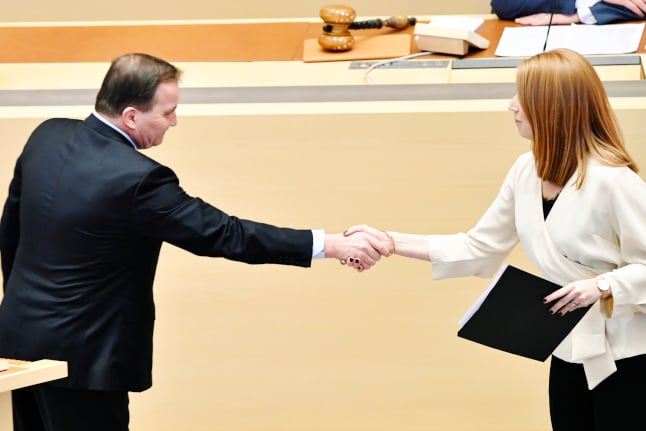
4. The coronavirus pandemic
The outbreak of Covid-19 at the start of 2020 provided yet another challenge for Löfven, with widespread – and ongoing – discussions about Sweden’s unusual pandemic response.
Unlike other countries, Sweden’s politicians were not particularly involved in the early pandemic response, instead handing over authority to the Public Health Agency. This is protected by Swedish law, where ministerial rule of individual agencies and authorities is prohibited. Ministers are not allowed to interfere in day-to-day operations of government agencies, and must instead amend relevant laws if they wish to change the way agencies work.
Additionally, Sweden’s pandemic response, unlike in other countries, was not built on widespread testing, lockdowns or usage of face masks, choosing instead to rely on people’s personal responsibility to keep distance from each other and avoid meeting too many people. It later stepped up testing efforts and the government introduced a series of laws, including restricting opening hours for restaurants.
This has been widely discussed both within and outside Sweden, with the independent Coronavirus Commission due to release a report on this aspect of the pandemic response in February 2022. The commission’s report from October 2021 painted a damning portrait of other parts of the response, describing aspects as a “complete failure”. Löfven described this choice of words as “a bit of a stretch”.
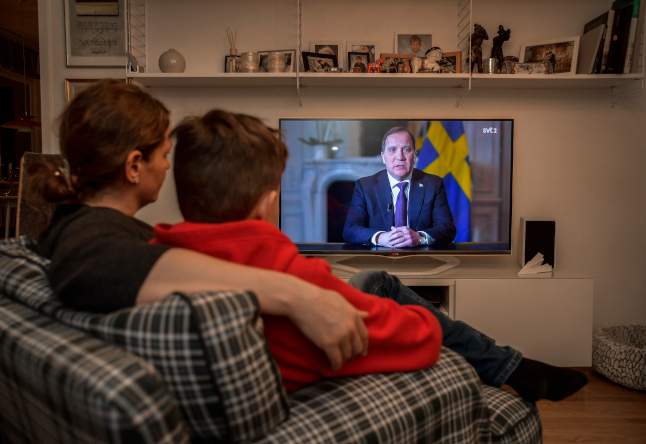
Photo: Anders Wiklund/TT
5. The 2021 vote of no confidence
As previously mentioned briefly, Löfven lost a vote of no-confidence called by the Left Party in summer 2021, after a proposal to introduce unregulated rents in newly built properties. He was the first prime minister in modern Swedish history to lose such a vote.
Löfven remained prime minister during this time as part of a caretaker government, eventually being re-elected just weeks later after 173 MPs voted against him – two shy of the 175 MP limit required for him to not be re-elected.
After the re-election, Löfven continued as Sweden’s prime minister with an almost identical cabinet, despite the fact that the January Agreement – and therefore his support – was technically no longer in effect. In practice, parties have continued to follow this agreement, with the red-green coalition now tacitly supported by the Centre Party and the Left Party.
Just over a month later, on August 22nd 2021, Löfven announced his plans to resign as party leader and as prime minister at the party congress in November, after seven years as prime minister and ten as leader of the Social Democrats.
His expected successor in both roles is current Finance Minister Magdalena Andersson, who has been approved by the Social Democrats to take over as their leader. To become prime minister, she will have to approved by parliament. If successful, she will become Sweden’s first female prime minister.
Finance Minister Magdalena Andersson is tipped to become Sweden's next Prime Minister, replacing incumbent Stefan Löfven as leader of the Social Democrats on Thursday. https://t.co/YF9AwLgq2L
— The Local Sweden (@TheLocalSweden) November 4, 2021

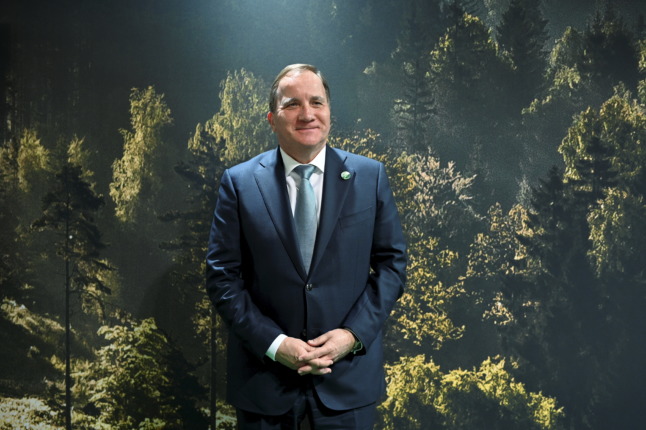


 Please whitelist us to continue reading.
Please whitelist us to continue reading.
Member comments